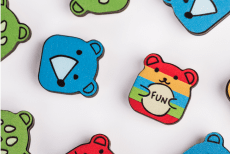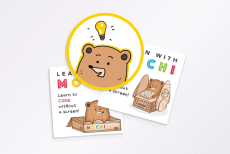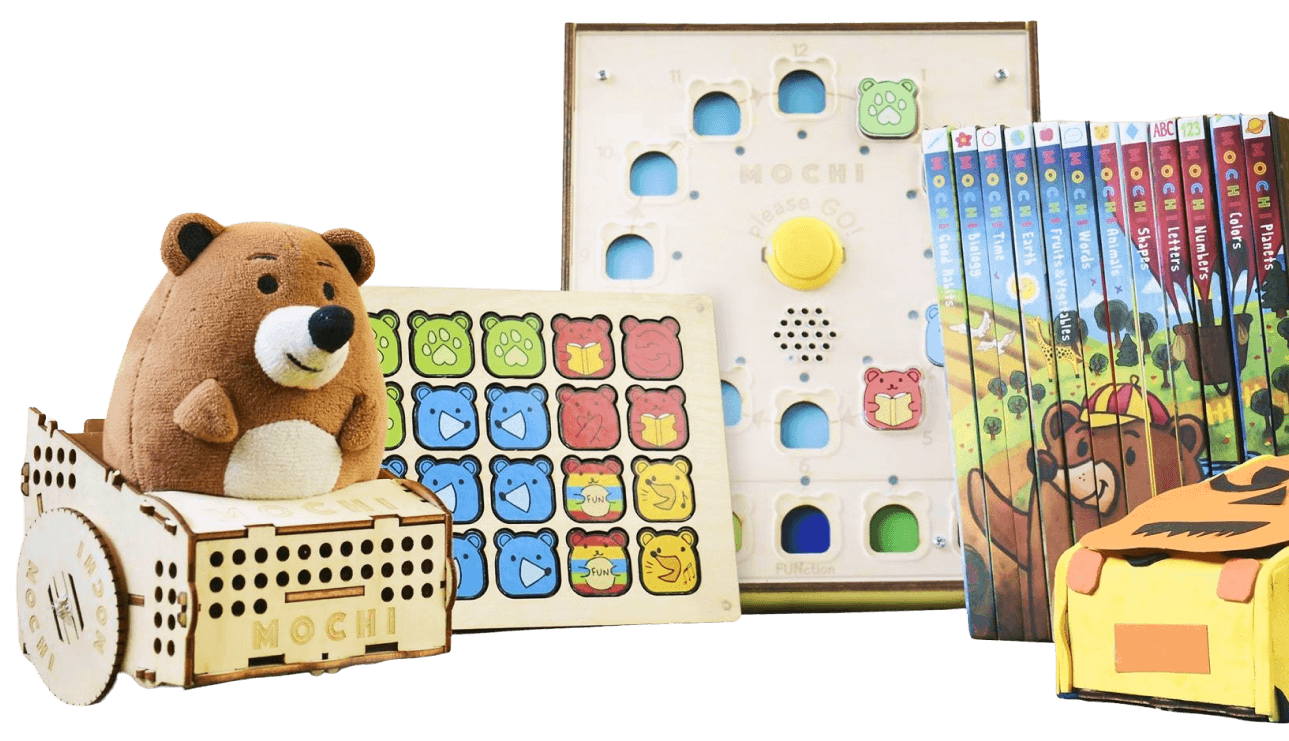Families across the globe are adapting to the changes in our daily life as a result of the COVID-19 pandemic. Here are 8 simple tips for helping children cope with changes during this time.
Most schools, places of public gathering, and nonessential businesses are closed. You might catch yourself wondering, will my child be able to cope with all of this?
None of this is easy, but it helps to stay focused on what is possible in order to reinforce our own sense of control and to reassure your child that they are okay, and that the situation will get better.
It can hard at times to assure your child everything will be okay. There are some things to consider on how to talk to kids about tragic events.

Many of us are, on top of all of this, feeling productivity pressure. Others feel this may perhaps be the ultimate pause and reset button.
My husband and I have had very deep discussions recently late at night as we all try to comprehend all this happening around us. I’m sure you’re having these talks with your spouse and perhaps parents and close friends too. I’ll admit it, living in self-isolation can feel utterly exhausting.
Not until I read this article did it put my feelings into perspective for me, that discomfort you’re feeling is grief. We’ve never felt like this on a scale of this magnitude before. Sadly, our kids will begin to sense these feelings from us soon, if they have not already.
This global lockdown has the potential to be a mental health crisis in the making, if we don’t carefully put into place a well planned, safe, loving environment for our children, ourselves and honestly for our communities immediately.
I’ve put together some helpful tips for helping children cope with changes, especially resulting from COVID-19. They are basic and simple and I know we can all work together to get your child and you through this.
8 TIPS FOR HELPING CHILDREN COPE WITH CHANGES
Let’s start out, just like on every flight you’ve taken, put your air mask on first parents and then here’s how we put on our child’s to help them cope with all of the changes in their world right now.
These simple tips will help you establish a safe zone for your child to cope.
STAY IN A ROUTINE
Children are used to having a routine during the school week. Try to stick with a daily schedule, but don’t be too hard on yourself if life intervenes.
Even when children are not going to school, they still need a regular bedtime. Simple things like changing into a clean set of clothes help
give the day more purpose.

READ BOOKS ALOUD TO YOUR CHILDREN
Even older children, who read well independently, enjoy it when someone reads aloud to them.
GET SOME EXERCISE AND SPEND TIME OUTSIDE
Whether you use an exercise video or go for a bike ride, exercise and spending time outside reduce anxiety and improve focus and mood.

SPEND TIME TOGETHER AS A FAMILY
Play a board game. Learn the lyrics to a song and sing together. Dance. Build with Legos. Look at family photos. Bake a cake.
ASSIGN YOUR CHILDREN SOME CHORES
Assign smaller jobs (setting and clearing the table) to small kids and bigger jobs (cleaning the bathroom, washing the dishes) to big kids. Doing chores makes children feel like they are contributing to the well-being of the family.
Teach children everyday actions to reduce the spread of germs.
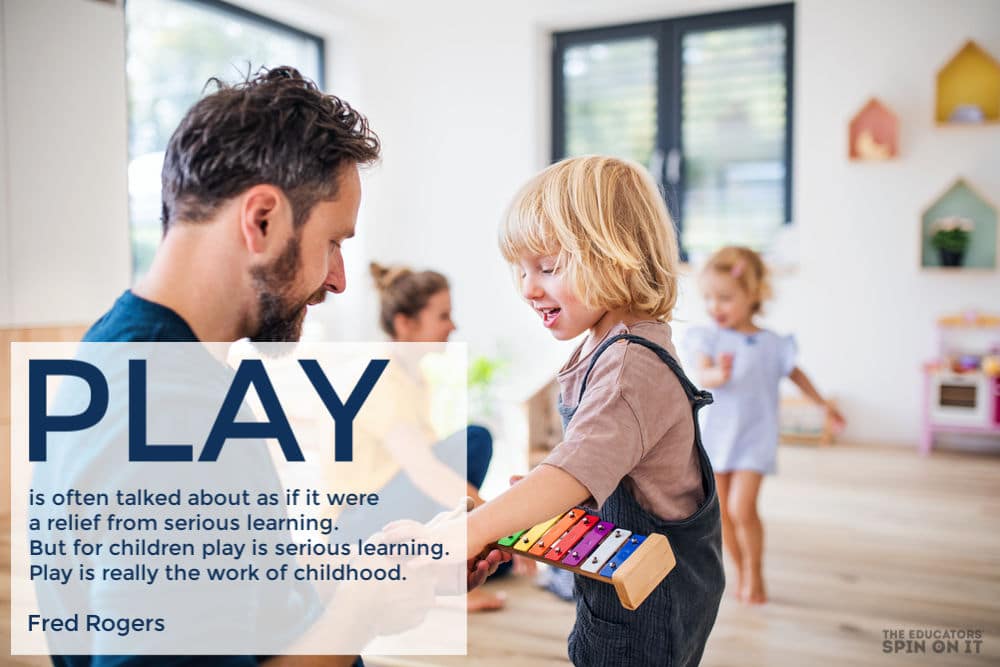
MAKE TIME TO PLAY
Play is essential to your child’s development, especially during these times. It contributes to the cognitive, physical, social, and emotional well-being of your child.
There are various types of play for kids to explore to build their healthy social and emotional development.
BE KIND TO EACH OTHER AND YOURSELF
Talk to your children about how they are feeling. If they are hovering around while you are doing something like cooking or cleaning or doing work, it may be their way of letting you know that they want to talk. It is normal for your child, and you, to feel more irritable and anxious right now.
It’s also normal for them to need more reassurance and affection. If your child has questions, answer factually, but try to keep the focus on all the things that are being done to keep people healthy.
Most importantly make yourself available to listen and to talk.
Here are some more tips for Talking with children about Coronavirus from the CDC.
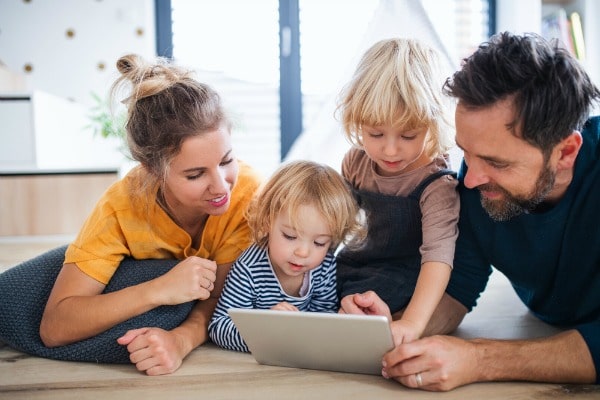
CONNECT WITH OTHERS VIRTUALLY
Make an effort to call or video chat with loved ones to see how they are doing. You’d be surprised how long cousins can talk during times like this and how close they quickly become.
Reach out to parents of your child’s classmates or friends. You may be able to set up a virtual playdate or chat with friends, depending on your child’s age.
Some children might appreciate writing to and hearing back from their teacher. Thinking of others’ feelings throughout this time can be a helpful way to feel connected.
THERE ARE A FEW TRENDS HAPPENING FOR NEIGHBORHOODS TO CONNECT AND HELP FEEL EMPOWERED.

SUPPORTING CHILDREN DURING THE CORONAVIRUS (COVID-19) OUTBREAK
Keep this list handy of ways to help your children cope with these changes.
- Stay in a routine.
- Read books aloud to your children.
- Get some exercise and spend time outside.
- Spend time together as a family.
- Assign your children some chores.
- Be kind to each other and yourself.
- Make time for PLAY!
- Connect with others virtually.
What tips do you want to share that are helping your child cope with changes during this time? Share in the comments below!

Perhaps the silver lining in all of this is that as people stay home, Earth turns wilder and cleaner.
Need to get the kids moving? Read these tips for staying active at home with kids during the coronavirus pandemic.



